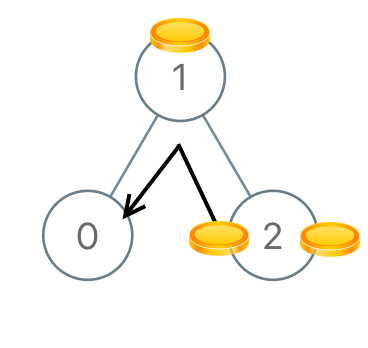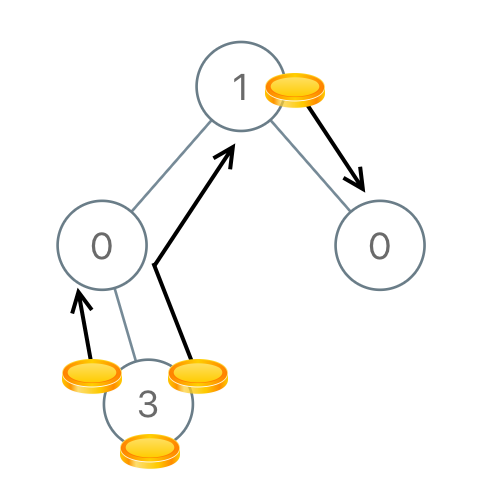In a country popular for train travel, you have planned some train travelling one year in advance. The days of the year that you will travel is given as an array days. Each day is an integer from 1 to 365.
Train tickets are sold in 3 different ways:
- a 1-day pass is sold for
costs[0]dollars; - a 7-day pass is sold for
costs[1]dollars; - a 30-day pass is sold for
costs[2]dollars.
The passes allow that many days of consecutive travel. For example, if we get a 7-day pass on day 2, then we can travel for 7 days: day 2, 3, 4, 5, 6, 7, and 8.
Return the minimum number of dollars you need to travel every day in the given list of days.
Example 1:
Input: days = [1,4,6,7,8,20], costs = [2,7,15] Output: 11 Explanation: For example, here is one way to buy passes that lets you travel your travel plan: On day 1, you bought a 1-day pass for costs[0] = $2, which covered day 1. On day 3, you bought a 7-day pass for costs[1] = $7, which covered days 3, 4, ..., 9. On day 20, you bought a 1-day pass for costs[0] = $2, which covered day 20. In total you spent $11 and covered all the days of your travel.
Example 2:
Input: days = [1,2,3,4,5,6,7,8,9,10,30,31], costs = [2,7,15] Output: 17 Explanation: For example, here is one way to buy passes that lets you travel your travel plan: On day 1, you bought a 30-day pass for costs[2] = $15 which covered days 1, 2, ..., 30. On day 31, you bought a 1-day pass for costs[0] = $2 which covered day 31. In total you spent $17 and covered all the days of your travel.
Note:
1 <= days.length <= 3651 <= days[i] <= 365daysis in strictly increasing order.costs.length == 31 <= costs[i] <= 1000
Solution: DP
dp[i] := min cost to cover the i-th day
dp[0] = 0
dp[i] = min(dp[i – 1] + costs[0], dp[i – 7] + costs[1], dp[i – 30] + costs[2])
C++
|
1 2 3 4 5 6 7 8 9 10 11 12 13 14 15 16 17 18 19 20 |
// Author: Huahua, running time: 0 ms class Solution { public: int mincostTickets(vector<int>& days, vector<int>& costs) { vector<int> req(days.back() + 1); vector<int> dp(days.back() + 1); for (int day : days) req[day] = 1; dp[0] = 0; for (int i = 1; i < dp.size(); ++i) { if (!req[i]) { dp[i] = dp[i - 1]; continue; } dp[i] = dp[i - 1] + costs[0]; dp[i] = min(dp[i], dp[max(0, i - 7)] + costs[1]); dp[i] = min(dp[i], dp[max(0, i - 30)] + costs[2]); } return dp.back(); } }; |
Python
|
1 2 3 4 5 6 7 8 9 10 11 12 13 |
// Author: Huahua, running time: 60 ms class Solution: def mincostTickets(self, days: 'List[int]', costs: 'List[int]') -> 'int': req = set(days) dp = [0] * (days[-1] + 1) for i in range(1, len(dp)): if not i in req: dp[i] = dp[i - 1] continue dp[i] = min(dp[max(0, i - 1)] + costs[0], dp[max(0, i - 7)] + costs[1], dp[max(0, i - 30)] + costs[2]) return dp[-1] |





